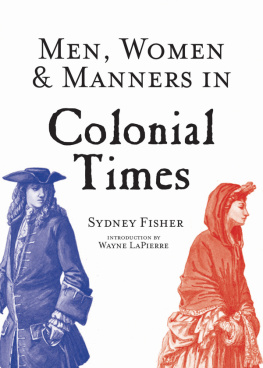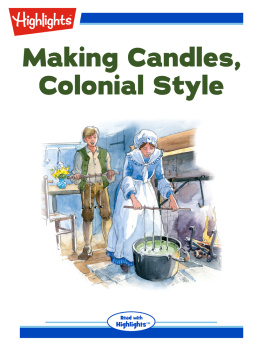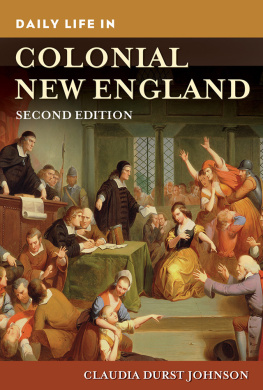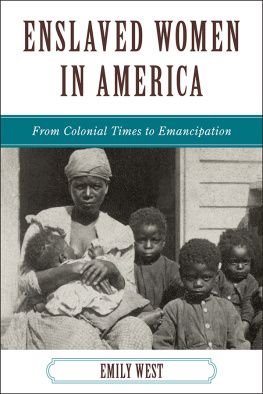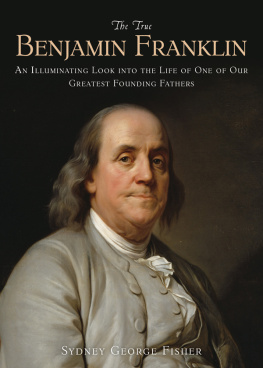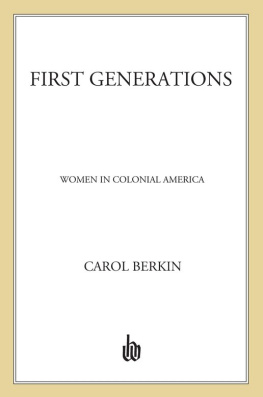
First published 1897 by J. B. Lippincott Company
Introduction copyright 2012 by Palladium Press for the Library of American Freedoms
First Skyhorse Publishing edition 2015
All rights to any and all materials in copyright owned by the publisher are strictly reserved by the publisher.
All inquiries should be addressed to Skyhorse Publishing, 307 West 36th Street, 11th Floor, New York, NY 10018.
Skyhorse Publishing books may be purchased in bulk at special discounts for sales promotion, corporate gifts, fund-raising, or educational purposes. Special editions can also be created to specifications. For details, contact the Special Sales Department, Skyhorse Publishing, 307 West 36th Street, 11th Floor, New York, NY 10018 or info@skyhorsepublishing.com.
Skyhorse and Skyhorse Publishing are registered trademarks of Skyhorse Publishing, Inc., a Delaware corporation.
Visit our website at www.skyhorsepublishing.com.
10 9 8 7 6 5 4 3 2 1
Library of Congress Cataloging-in-Publication Data
Fisher, Sydney George, 18561927.
Men, women & manners in colonial times / by Sydney Geo. Fisher ; illustrated with photogravures and with decorations by Edward Stratton Holloway. First Skyhorse Publishing edition.
pages cm
First published 1897 by J. B. Lippincott CompanyTitle page verso.
ISBN 978-1-62914-502-0 (paperback : alkaline paper) 1. United StatesSocial life and customsTo 1775. 2. United StatesDescription and travel. 3. United StatesHistoryColonial period, ca. 16001775. I. Title. II. Title: Men, women and manners in colonial times.
E162.F53 2015
973.2dc23
2014042625
Print ISBN: 978-1-62914-502-0
Ebook ISBN: 978-1-63220-045-7
Printed in the United States of America
Editors Note: This is a facsimile of the original edition, first published in 1897. Skyhorse is committed to preserving works of cultural importance and, as such, has elected to keep the text as close to the original as possible, despite some imperfections and antiquated cultural expressions. Though the editors have made minor adjustments to fill in missing or severely damaged text, none of the original language has been altered.
INTRODUCTION
by Wayne LaPierre
In analyzing periods of history, historians tend to focus on significant events and the accomplishments of famous people of the time. In the case of the development of colonial America and the foundation of the American republic, this conventional approach emphasizes events such as the Boston Tea Party, the First Continental Congress, the Battle of Bunker Hill, the drafting of the Declaration of Independence, Washingtons crossing of the Delaware, the British surrender at Yorktown, and the Philadelphia Convention of 1787; along with the lives of men such as George Washington, Thomas Jefferson, James Madison, John Adams, and Benjamin Franklin.
But what about the common man? What about the everyday lives of the colonists? After all, it was their votes that elevated the Founding Fathers to power, and their voices that were reflected in the choices these great men made in rejecting British rule and establishing a new republic. What were the important influencessocial, moral, racial, and politicalthat created the base of public opinion?
In Men, Women & Manners in Colonial Times , author Sydney George Fisher examines the lives of the first settlers: why they immigrated to America and how their European past affected their dispositions, customs, and laws. Volume I discusses the colonies of Virginia, Massachusetts, Connecticut, Rhode Island, New Hampshire, Vermont, Pennsylvania, and New Jersey. Volume II looks at New York, Maryland, North Carolina, South Carolina, and Georgia.
In his preface, Fisher remarks on the variety seen in the colonies:
In travelling from Massachusetts to the Carolinas one passed through communities of such distinct individuality that they were almost like different nations. Each had been founded for a reason and purpose of its own. Each had a set of opinions and laws peculiar to itself, and it was not uncommon to find the laws and opinions of one a contradiction of those of another.
The American author and lawyer Sydney George Fisher (1856-1927) wrote a number of significant books on American history. They include The Evolution of the Constitution of the United States, The Struggle for American Independence, The Making of Pennsylvania, The True Benjamin Franklin, The Quaker Colonies , and The True History of the American Revolution .
This Library of American Freedoms edition is an exact facsimile of the Lippincott edition of 1898.
Wayne LaPierre
FAIRFAX, VIRGINIA
OCTOBER 9, 2012


S HIRLEY
James River, Va.
Built 1760

C OPYRIGHT , 1897
BY
J. B. L IPPINCOTT C OMPANY

PREFACE
T HE charm of a journey through the colonies was its variety. In travelling from Massachusetts to the Carolinas one passed through communities of such distinct individuality that they were almost like different nations. Each had been founded for a reason and purpose of its own. Each had a set of opinions and laws peculiar to itself, and it was not uncommon to find the laws and opinions of one a contradiction to those of another.
They were a strange and picturesque collection of settlements on the extreme eastern verge of a vast continent; a mere fringe along the sea-coast from Georgia to New Hampshire. Most of the people lived close to the shore, and all were within two hundred miles of it. Behind them stretched the great unknown continent, which for a thousand miles was nothing but trees,a vast forest that seemed to them interminable, for they did not know that beyond it were the open prairies with their long grass and herds of buffalo stretching to the Mississippi, and beyond that the plains, the desert, and the Rocky Mountains.
The wild fowl that every autumn came to them in countless millions from Alaska could have told them all; and now we know what the canvas-back and the mallard have always known. But we must be careful not to think ourselves on that account the superiors of the colonists. We have at our command more facts and more material wealth, but it is a question whether we are any wiser or better than the fathers; and it is extremely doubtful whether we enjoy ourselves as much as they did, when, in their scarlet cloaks, yellow waistcoats, and abundant leisure and room, they ornamented the Atlantic seaboard, with the continent behind them.
Those were brave days when the judges on the bench wore scarlet robes faced with black; when the tailor-shops, instead of the dull-colored woollens which they now contain, advertised, as in the New York Gazetteer of May 13, 1773, scarlet, buff, blue, green, crimson, white, skye blue, and other colored superfine cloths; when John Hancock, of penmanship fame, is described in his home in Boston with a red velvet skull-cap lined with linen which was turned over the edge of the velvet about three inches deep, a blue damask dressing-gown lined with silk, a white stock, with satin embroidered waistcoat, black satin breeches, white silk stockings to his knees, and red morocco slippers.

